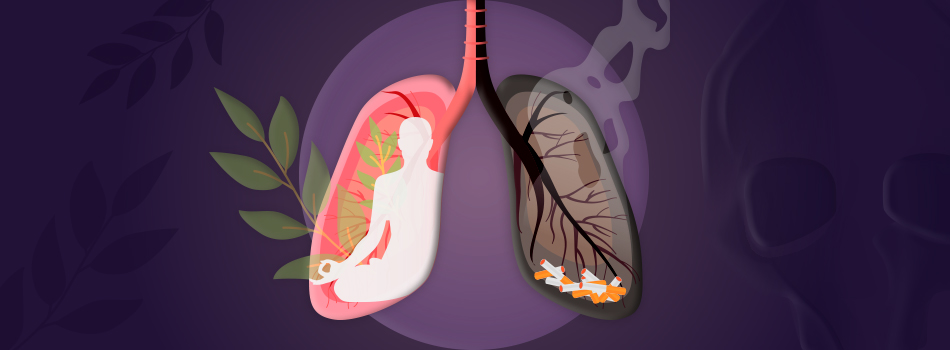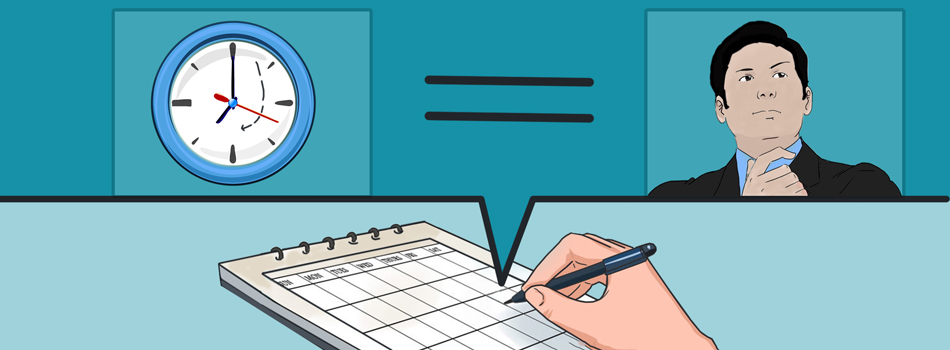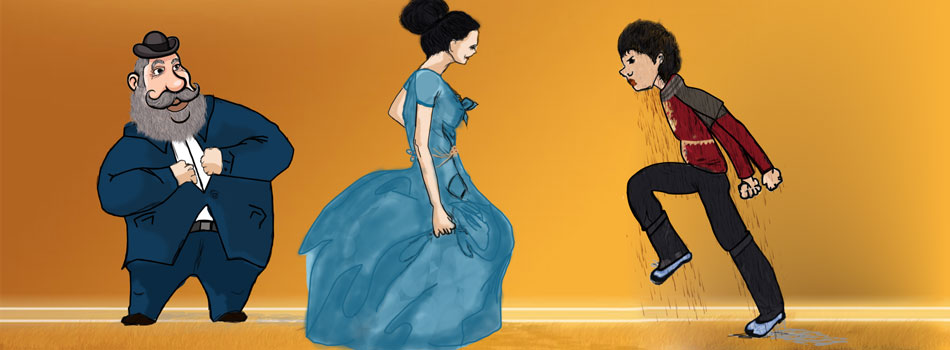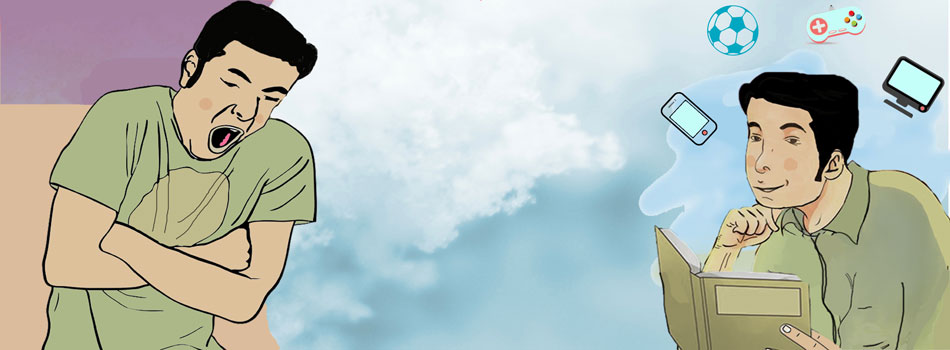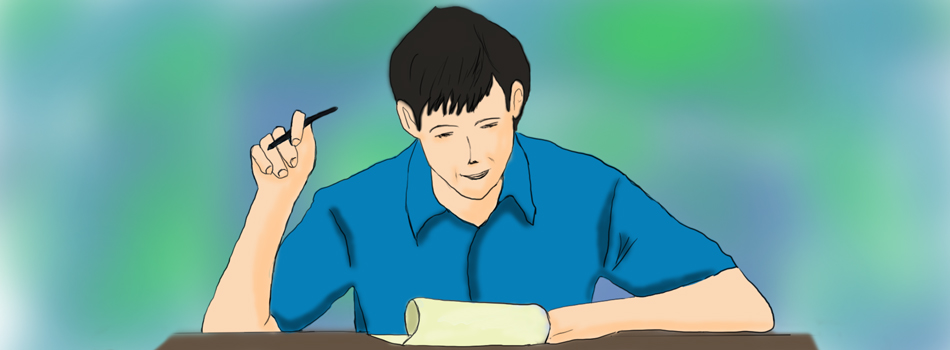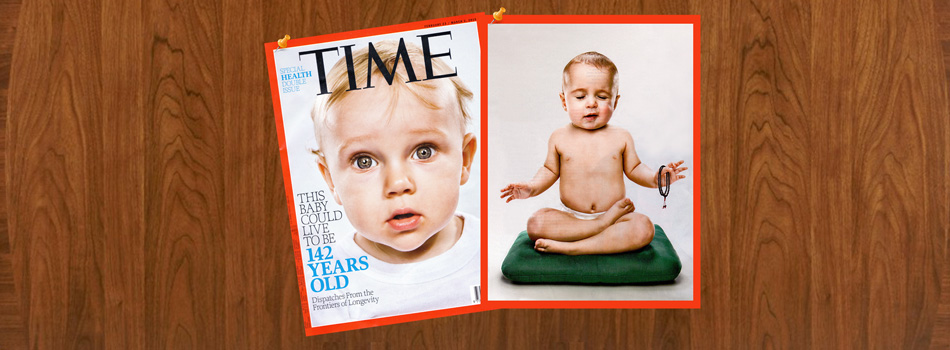
10 Tips for a Stress-free Life
published : 1 September 2016
It is possible to lead a stress free life, even in this day and age. But to do so, we need to look past the surface reasons of stress and identify the root causes. We need to adopt a new attitude towards life. Here are some tips to help you live a stress free and fulfilling life.
1. Be Happy With What You Have:
Most of us are never satisfied. We are continuously trying to be like someone else or running after more wealth, status etc.This creates stress within us, because there will always be someone who is better off. And material things lose their attraction as soon as we get them. John Rockefeller was once asked," How much is enough?" He replied, "Just one more."
The way to get relief is to consciously nurture a grateful attitude: to shift our attention to what we have instead of what we don't have.
When is the last time you counted your blessings? If you are still alive, you are luckier than the 1 million people who will die this weekend. If you have food, clothes and shelter, you are better off than 75% of the total population of the world. If you have some money in the bank or even in your wallet, you are one of the richest 8% of the world population.
To nurture gratitude you can adopt the practice followed by the Quantum family. Every morning, when we wake up , before we get out of bed, even before we open our eyes, we thank God (or Allah, Bhagvan or the universe, depending on our beliefs). This thankfulness is simply for being alive, for having another day to enjoy and to serve.
You will feel a contentment you haven't felt in many years. And the interesting thing is, the calmness you will feel when you nurture a grateful attitude will also enable you to work more steadily and creatively. So in addition to saving yourself from a lot of stress, you will also get more success and wealth as a bonus!
2. Live in the Present:
One late afternoon two Zen monks were walking through a forest full of wild animals. Suddenly they came upon a lovely woman. The woman was attempting to cross a narrow bridge on a stream, but couldn't because she had to balance two pots full of water hanging from a stick on her shoulders. The elder monk stopped beside the woman, took her hand and helped her cross the bridge.
After bowing politely to the woman the two monks continued on their path. The younger monk was sullen and silent as they walked along. They travelled through the forest, over hills, around valleys and through a town. After many hours has passed, the young monk finally said, "You are aware that we monks are not supposed to touch woman. Why did you touch that girl?"
The elder monk slowly turned and smiled. He said, "My dear brother, you have such heavy thoughts. left the woman alongside the road hours ago. Why are you still carrying her?"
One of the reasons we get stressed is because, like the young monk, we carry things around. In the office we get stressed thinking about the argument we had with our spouse the night before. At home, we worry about what the boss will tell us the next day.
Those who can liberate themselves from our past and the future and learn to be completely in the present, live a stress free and joyful life. Living in the moment does not mean indulging in momentary pleasures or not thinking about the consequences of our actions, it means giving our complete attention to whatever we are doing at the present moment.
Although it may seem difficult to us, living in the moment is not impossible. An effective way to bring our minds completely to the present has existed for thousands of years, and that is meditation.
That meditation helps us keep our minds in the present has been proved through scientific research as well. For example, a scientist named T. Hirai in Japan found that, Zen meditators are so focused on the moment that they never habituated themselves to the sound of a ticking clock. Most ordinary people block out the noise after a while, but meditators keep hearing it for hours.
Remember stress is not the result of reality, but how you look at reality:
A fundamental fact about stress is that it is not the result of an event, but our reaction to that event. Richard D Lazurus defined stress as the condition or feeling experienced when a person perceives that demands exceeds the personal and social resources the individual is able to mobilize.The key word here is perceive. It does not matter what the external situation is, what matters is how we react to this external situation. The less confidence you have, the more helpless and stressed you will feel in the face of others demands and expectations.
So for a stress free life, use meditation and positive autosuggestions to create more faith in yourself.
Also, have a positive attitude towards life. Look at challenges not as problems, but as opportunities. Instead of complaining about problems, try to do something about it. In the work place, do not complain about the boss being 'biased' toward another colleague, or being 'victimized' by the conspiracies of jealous colleagues. Instead, try to build a relationship with the boss so that he is aware of your skills, and win over the jealous colleague by saying good things about them to other co workers. There will be much less stress in your life.
3. Love Your Work and Work Will Be like Play:
Most of us blame a heavy workload for our stress. Yet, does 18 hour workdays have to be stressful ?
Work becomes a burden when it is just a job: a means for earning an income. When we find our work meaningful and joyful, it is invigorating rather than stress-inducing.
The truth is, there is an opportunity to help or serve others in most jobs. But we either do not recognize the connection, or do not do the job with the intention of serving others.
The Three Laborers
Three laborers were cutting rocks from a mine. The first one was asked, " What are you doing?" He replied, " I am cutting rocks." The second one was asked the same question. He replied, " I am cutting the rocks so that they have a beautiful rectangular shape and fit properly in their space." When the third one was asked the same question, he replied, " I am building a palace."
To the first laborer, his work was just a means of earning an income. To the second labourer, his work was a career, he wanted to do his work well and be known for his skill. To the third laborer, his was a means of realizing a beautiful and noble mission or dream. He loved his work.
By adopting the third attitude, you can minimize the stress from your work. If you know exactly why you are doing your work, and if the answer to that why is something meaningful and beneficial, and if you love what you are doing, then your work will become the source of boundless joy.
4. Create a More Exciting Life:
Some of us believe only too much work creates stress and anxiety. But the truth is, lack of work and monotony creates stress as well. If your life is boring to you, adopt some hobbies. This may be collecting something, or volunteering for a cause that is meaningful to you.
Also, take some risk once in a while. Do not be afraid of something where there is the risk of failing, but which can be very rewarding. To your surprise, you will find there is less stress in your life.
5. Manage Your Time Well:
Time is the most precious resource we have, and by learning to make the best use of your time, you can minimize your stress. You will get some valuable tips on time-management here.
6. Create a Stress-free Environment:
When we are feeling stressed or overwhelmed, our brain tends to be crowded with distracting thoughts and we tend to think about more about all the other things we have to do rather than the one at hand. A cluttered environment : such as a table full of open books or a room full of scattered clothes and things add to this sense of feeling out of control. So
make a habit of keeping your things organized. When you need to study one thing, just keep that one book open and the others neatly stacked. Make your bed, hang your clothes in their place.
Try to make your human environment, not just your physical environment as conducive to peace of mind as possible. Make friends with optimistic and easy going people, and try to keep away from worriers as much as possible.
If there is a Quantum center, branch or cell close to where you live, be sure to visit it. You will experience first hand how, in a truly positive environment, all your stress and anxiety can dissolve in a second.
7. Express Your Emotions:
Research suggests that expressing our emotions help relieve stress.
Crying lessens our internal pressure and makes us functional again. Research suggests that tears, whether they are happy or sad, relieve stress.
When we are stressed we tend to take shallow and short breaths and our heart rate becomes faster. Laughter helps us breathe easier and this counteracts the effects of stress. It also helps the autonomic nervous system tone down a bit and go off high gear, and that enables the heart to relax. In addition, laughter massages our heart and other vital organs, strengthens our immune system, increases mental sharpness and creativity, improve memory, and even sharpens our intuition.
Talking to a spouse or a friend can also be an enjoyable way to express our emotions and relieve stress. Try to be friends with cheerful and optimistic people. If you live near Quantum, come and talk to a Quantum counselor. You will feel much lighter.
If you have a anger and resentment stored inside, express it. You don't need to yell at the people you are angry with. Kick a football with as much force you can master, or open the bathroom tap and yell.
One of the ways to express our emotions without creating an awkward situation is meditation. We have separate for getting rid of different types of negative emotions, ranging from fear and anger to guilt and sadness.
8. Take Care of Yourself:
Often, especially when we are under deadline stress, we stop taking care of ourselves with the excuse that 'we don't have time.' The result is that we end up being so stressed that the stress about the work gets in the way of actual work. How many times have you worked through the night only to find that you are dysfunctional for the next two days?
In the long run, taking care of ourselves help relieve stress and makes us be more productive. Here are a few aspects of taking care of yourself:
Eat a healthy diet:
Do not skip meals, especially breakfast. It will cause a drop in blood sugar and create mid morning crankiness. Food high in omega-3, such as salt water fish, eggs and walnuts have a calming effect on the body.
Exercise:
Exercise leads to greater muscle relaxation and increased production of anti stress chemicals. Research also shows that people who are physically fit tend to have less extreme physiological response to stress.
Sleep:
When you don't get enough sleep, your body produces extra stress hormones, so it is important to get enough sleep. However, oversleeping, or using sleep as a way to escape, can also cause problems. So make sure you have healthy sleeping habits. Research shows however, that during meditation, lactate levels drop four times as much as that during sleep. So those who meditate regularly can get by with less sleep.
9. Practice Meditation:
No matter what the cause of the stress, its physical expression is the same. Harvard Physiologist Walter Cannon discovered 90 years ago that when we are stressed, our blood pressure, heart rate, muscle tension, and breathing rate increases, so does the flow of cortisol, adrenaline, and noradrenaline in our body. Together, these physiological effects are called the stress response or the fight or flight response.
In 1967, Dr. Herbert Bension, also from Harvard, found the effect of meditation in our body is exactly the opposite. When we meditate, our blood pressure, heart rate, muscle tension and breathing rate, cortisol and adrenaline secretion, all go down. Our parasympathetic nervous system becomes active and the flow of serotonin, a neuro transmitter than creates a feeling of well-being, increases.
In the Relaxation Response, Benson explained how meditators counteracted the stress induced fight or flight response and achieved a calmer happier state. The book became an instant best seller.
At the University of Wisconsin at Madison, Richard Davidson has used brain imaging to show that meditation shifts activity from the right prefrontal cortex to the left. His research suggests that by meditating regularly, the brain is reoriented from a stressful fight or flight mode to one of acceptance.
So if you meditate regularly, your body will change in a way so that it gets less and less stressed no matter what the circumstance. You will be able to deal with all situations calmly.
10. Nurture Your Soul:
The Buddha's cousin Devadatta had been planning to kill him for some time. One day, he let Nalagiri, an working elephant, loose against him. The elephant, who had already killed one person, stormed through the street on which the Buddha was going on his alms round. The elephant threw away a person on the way with his trunk, and rushed towards the Buddha.The Buddha didn't panic. He just stood calm and unafraid. Suddenly, the raging elephant became peaceful. It knelt before the Buddha. The Buddha patted the animal's forehead affectionately.
Here is another incident from the life of prophet Mohammad (pbuh).
One afternoon, the prophet took off his sword and was resting against a tree. When he opened his eyes he saw a man holding a sword against his throat. 'Who will save you now?', the man asked. "Allah", the prophet replied calmly. At this the man's hand began to shake and he dropped the sword. Then the prophet took the sword and held it against the man's throat. " Who will save you now?", asked the prophet "No one can save me but you', replied the man."The prophet withdrew the sword, and let him go. The man accepted the prophets religion.
What was it about these greatest human beings of all time that made them so calm and fearless? They had nurtured their spirits.
Our physiological self, or our ego, is always afraid, because it knows it will die. It tries to amass power and wealth in order to feel secure, but in vain. It becomes attached to the people and things around it, and fears losing them. That is why it is always stressed, always anxious.
Our spirit, on the other hand, is everlasting. It knows that the only true way to security is through surrendering to the Almighty, or the universal life force, whatever name you may want to call the ultimate being. It is full of universal love, and wants to live a life of service and creativity.
You can start nurturing your spirit simply by adding more love to your life. Instead for living just for yourself, try to serve others. Besides wishing your own good, wish the best for everyone. Do not be afraid of being warm and affectionate to your family and friends. Give warm hugs. Smile. Do not be afraid of decent expressions of love.
The rejuvenating power of love will wash your stress away.







